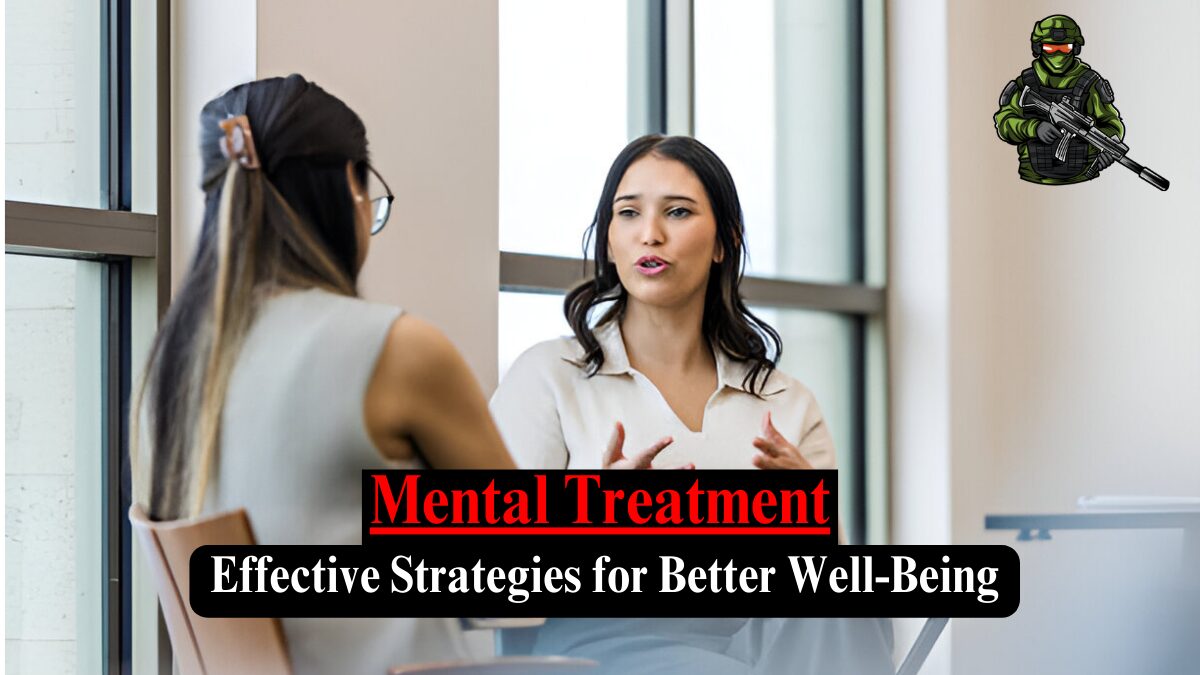Mental Treatment Effective Strategies for Better Well-Being
Mental health is just as important as physical health, yet many people hesitate to seek mental treatment when they need it. In this comprehensive guide, we’ll explore various strategies and approaches that can help improve your mental well-being and discuss why professional mental treatment matters.
Understanding Mental Health and Its Impact
From our relationships to our work performance. When we struggle with mental health challenges, seeking appropriate can make a significant difference in our quality of life. Research shows that early intervention and consistent care lead to better outcomes.
Common Mental Health Challenges
Anxiety and Depression
These conditions often go hand in hand and can severely impact daily functioning. Recognizing the signs early helps in getting timely mental treatment and support. Symptoms might include persistent worry, loss of interest in activities, changes in sleep patterns, and difficulty concentrating.
Stress Management
Chronic stress can lead to various mental and physical health issues. Learning effective stress management techniques is crucial for maintaining good mental health. This might include meditation, regular exercise, or speaking with a mental health professional.
Relationship and Social Issues
Our social connections significantly influence our mental well-being. Problems in relationships or difficulty maintaining social connections can benefit from professional guidance and support.
Effective Mental Treatment Approaches
Therapy Options
Different types of therapy work for different people. Some common approaches include:
Cognitive Behavioral Therapy (CBT) helps identify and change negative thought patterns and behaviors. It’s particularly effective for anxiety and depression.
Mindfulness-Based Therapy focuses on staying present and developing awareness of thoughts and feelings without judgment.
Group Therapy provides support and understanding through shared experiences with others facing similar challenges.
Medication Management
Sometimes, medication combined with therapy provides the most effective mental treatment plan. Working closely with a psychiatrist helps find the right medication and dosage for your specific needs.
Lifestyle Changes for Better Mental Health
Exercise regularly to boost mood and reduce stress Practice good sleep hygiene Maintain a balanced diet Develop healthy social connections Set realistic goals and boundaries
Creating a Support System in Mental Treatment
Building Your Network
Having a strong support system is crucial for health recovery. This includes:
Family and friends who understand and support your journey Mental health professionals who provide guidance Support groups where you can share experiences Online communities for additional resources
Self-Care Practices
Implementing daily self-care routines strengthens your mental health foundation. This might include:
Morning meditation or journaling Regular physical activity Healthy eating habits Adequate rest and relaxation time
Professional Help and Resources
Finding the Right Professional
When seeking mental treatment, consider:
Credentials and specializations approaches Insurance coverage and accessibility Personal comfort with the professional
Online Resources and Tools of Mental Treatment
Digital mental health resources can supplement traditional treatment:
Meditation apps Online therapy platforms Mental health tracking tools Educational resources
Conclusion of Mental Treatment
Taking care of your health is a journey, not a destination. Whether you’re dealing with specific challenges or wanting to maintain good mental well-being, professional mental treatment can provide the support and guidance you need. Remember that seeking help is a sign of strength, not weakness, and there are many effective treatment options available to support your journey to better mental health.
FAQs
How do I know if I need mental treatment?
If you’re experiencing persistent changes in mood, behavior, or daily functioning that impact your quality of life, it’s worth consulting a mental health professional. Common signs include prolonged sadness, anxiety, sleep problems, or difficulty managing daily tasks.
How long does mental health treatment usually take?
The duration varies depending on individual needs, conditions, and treatment approaches. Some people might see improvement in a few months, while others benefit from longer-term support.
Is online therapy as effective as in-person treatment?
Research shows that online therapy can be as effective as in-person treatment for many conditions. The best choice depends on your personal preferences and specific needs.
Will insurance cover mental health treatment?
Many insurance plans cover mental health services, but coverage varies. Check with your insurance provider about specific coverage details and in-network providers.
Can I combine different types of treatment?
Yes, many people benefit from combining different approaches, such as therapy, medication, and lifestyle changes. Work with your healthcare providers to develop the most effective treatment plan for your needs.







